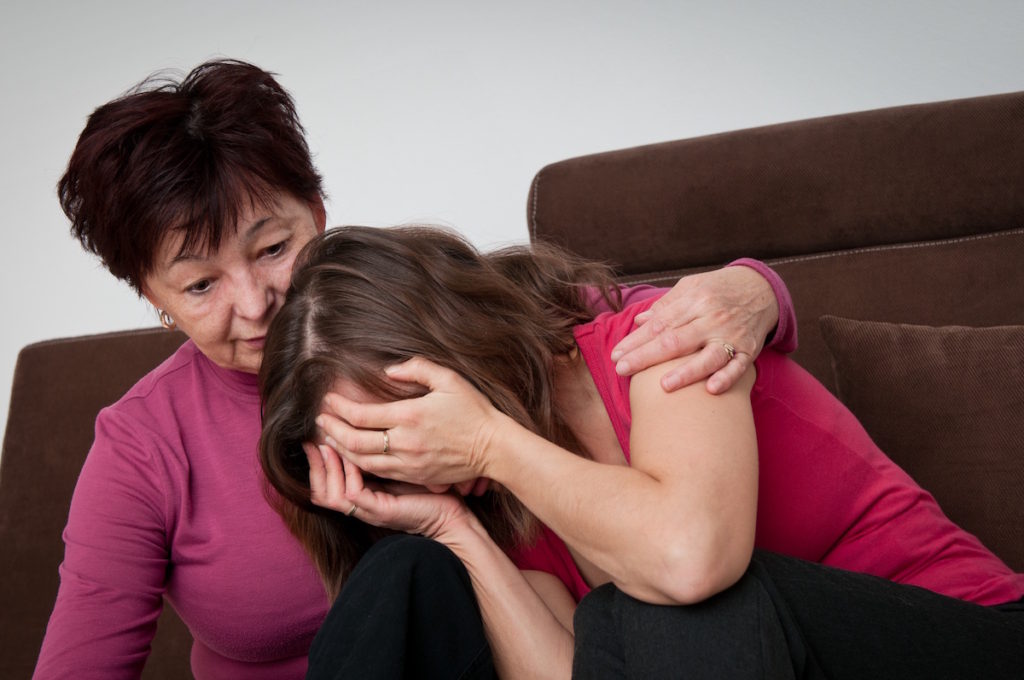Lorelie Rozzano is a guest blogger for Vertava Health.
How Far Would You Go To Help Your Child Get Clean And Sober?
— *Names have been changed Sitting in a group of these three women, it struck me just how fierce momma bears really are. Their adult children were in treatment and they were attending the family program hoping to learn more about addiction. All three women claimed there is nothing they wouldn’t do to save their child’s live. These mamas were fierce, loyal and frankly- tired. As a mama bear myself, I get it. When your child has a terminal illness, there isn’t anything you wouldn’t do to help them recover. If you could, you’d trade places with them. Watching your child suffer is excruciatingly painful. It’s especially difficult with addiction, where the cure appears to be simple – stop using drugs and alcohol and save your life. But there is nothing simple about addiction or the families’ response to it. Addiction is an irrational brain disease that affects emotions, behavior, logic, reasoning and impulse control. [lorelie-callout] Jane* says she would die for her son. Jane’s son Austin* is only 19, but despite his young age, he has a severe marijuana habit. Austin started smoking marijuana when he was just 12. Now Austin has dropped out of high school and spends most of his time alone in his room smoking dabs. When Jane asks him to look for a job or help around the house, Austin explodes. Jane walks on eggshells around him and says her son isn’t the same person at all. Austin has just been diagnosed bi-polar disorder. Jane wonders if her son’s addiction and mental health issues are her fault. Jane is a recovering alcoholic and says when Austin was young he saw a lot of awful stuff. Jane acknowledges she feels guilty about her past and overcompensates now because of it. Nancy’s* daughter Sara* was prescribed OxyContin for dental surgery. Up until then, Nancy says her daughter was an ordinary teenager who loved cheerleading. Now, ten years later, Sara is couch surfing and on the streets. She’s also addicted to heroin. Nancy says she still can’t believe it. She doesn’t understand how her daughter became an addict when she came from a loving home and had every opportunity in life. Nancy says Sara was a straight A student who was on the cheerleading squad. Sara was all set for college, and her future was bright. Nancy misses her daughter and worries about her. She says the only way she can get Sara to come home is when she gives her money to buy drugs. Ellen’s* son Tyler* was prescribed Ritalin for his ADHD. Ellen says Tyler struggled in school. He had a hard time focusing and sitting still. Tyler was always getting into trouble with the teachers. Despite these difficulties, Tyler and his Mom remained close. Ellen couldn’t understand why Tyler used drugs and begged him to stop, but Tyler couldn’t. He wanted his mom to know why he used drugs and asked his mom to use crystal meth with him. He wanted her to know what it felt to be high and why he liked it so much. One day Ellen did just that. She agreed to use meth with her son. Ellen was 60 years old, Tyler was 27. Ellen had only smoked weed twice in her life, while Tyler had been smoking it since he was 13. Tyler’s tolerance was high. Ellen’s was not. Ellen says it was awful. Her heart raced, and she was terrified. She couldn’t breathe and panicked. Tyler told her to relax, but Ellen felt like she was dying. She called a friend who drove her to the hospital where she spent the night on a stretcher in the hallway of the emergency ward. Ellen shudders as she recalls it. All three woman have much in common. Even though their children were different ages, used different drugs and had different life experiences, the result was still the same. Their lives were out of control, their children were dying and their entire family was suffering. These mothers couldn’t understand why their children can’t stop using, and they’re not alone. At first, they were just trying to feel good. Over time, their tolerance grew, and it took more and more drugs to do that. Even with increased usage, the effects were not the same. When this happens they will change the way they use – smoking weed turns into dabbing, snorting crystal meth turns into smoking it, smoking heroin turns into shooting it. This is called tolerance and progression. As long as Sara, Austin and Tyler can manipulate their environment, they will continue to deteriorate resulting in cognitive impairment, chronic health issues and possible death- but there is hope. Jane, Nancy and Ellen are learning a lot. They will have support from the family program and be encouraged to join a recovery group when they get home. These moms know what many families still don’t- addiction is a family illness. Jane, Ellen and Nancy are willing to make changes. They know they can’t ask their children to work hard if they’re not prepared to do the same. Sara, Austin and Tyler are fortunate. They have families who have reached out for support and learned how to love and help them, without enabling their illness. If you or someone you know needs help, please call this confidential support line for assistance. 844-470-0410.


